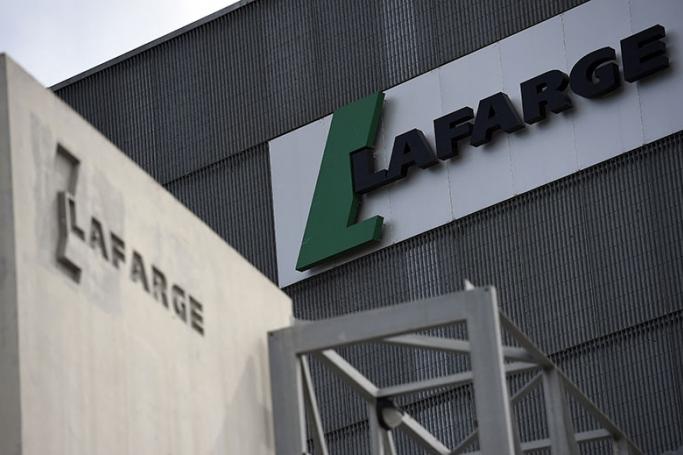The French construction giant Lafarge lost a court battle Tuesday to stop charges against it for complicity in crimes against humanity in Syria.
Lafarge is one of several multinationals being pursued in crimes against humanity cases, though in the past most prosecutions have been abandoned.
Here are some of the most notorious:
- Lafarge -
The cement giant is accused of paying millions of euros to jihadist groups including the Islamic State to keep its cement factory in northern Syria running through the early years of the country's civil war.
Lafarge is also charged with financing terrorism and violating an EU embargo over the payments made by its Syrian subsidiary in 2013 and 2014.
- Total and Myanmar -
French energy giant Total came under pressure this year from pro-democracy activists to "stop financing" the country's brutal military junta.
In May Total suspended cash payments it had been making to a joint venture with the army.
This was just the latest in a string of controversies involving Total in Myanmar.
In 2008 Belgium's appeals court dropped a case brought by Myanmar refugees against Total, which they accused of crimes against humanity by providing logistic and financial support to the junta.
French authorities had dismissed a forced labour case against Total two years earlier
- Arms companies in Yemen -
Amnesty called on the International Criminal Court in 2019 to investigate European arms companies for violations of international law that could amount to war crimes.
It demanded an investigation into the potential complicity of high-ranking officials from European companies and governments in 26 airstrikes which unlawfully killed or injured civilians.
- Lundin and Sudan -
Sweden's international prosecutor is involved in a long-running investigation into whether the Swedish oil company Lundin had any role in war crimes committed in Sudan between 1997 and 2003.
The company and its partners had set the wheels in motion for a power struggle that led to numerous crimes, the prosecutor claims.
In 2018 prosecutors were given the green light in principle to indict the chief executive of Lundin and the chairman of the board.
- Shell and Nigeria -
Twelve Nigerians living in the US took the Anglo-Dutch energy giant Shell to court in 2009 over allegations of torture and other human rights abuses in the Niger delta between 1992 and 1995.
But in 2013 the US Supreme Court ruled that the US could not pursue companies for human rights violations abroad.
- SNCF and the Holocaust -
In 2007 France's top administrative court said it did not have the jurisdiction to rule on the responsibility of state rail company SNCF for its role in the deportation of Jews during World War II.
SNCF transported 76,000 Jews across France to Nazi death camps from 1942 to 1944. Only 3,000 survived.
In 2014 France and the US creating a $60 million fund paid for by France for Holocaust victims transported by the company who had obtained American citizenship.
The affair nearly cost SNCF its lucrative US contracts.
- Conglomerates in Nazi Germany -
Three German industrial groups were convicted for crimes against humanity after the end of World War II.
Friedrich Flick, founder of the Flick conglomerate Flick, was jailed to seven years in prison for using concentration camp prisoners for slave labour and benefiting from the plundering of Jews.
Twelve managers at IG Farben, which made the poison gas used in the death camps, were also handed prison sentences.
And a dozen former managers at the steel-maker Krupp were jailed from three to 12 years for providing weapons for the Nazis and using forced labour.
IG Farben was dissolved by decree in 1950 but it took until 2003 to wind it up.
Even though they were not pursued by the courts, several other major German companies later recognised their responsibility in crimes committed by the Nazis.












